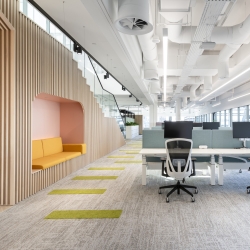June 16, 2023
Whinging Poms? Why the UK workforce is one of the unhappiest in Europe
 Nearly all UK workers (90 percent) are not enthused by their work and workplace, according to Gallup’s State of the Global Workplace 2023 Report. The UK workforce rate of engagement at work (10 percent) remains one of the lowest in Europe, ranking near the bottom among peer countries (33 out of 38) with countries like the US reporting triple the number of engaged employees (31 percent). The poor state of disengaged workforces is not unique to the UK, with just 13 percent of employees across Europe feeling engaged at work, and the lowest rates of engagement reported in France (7 percent) and Italy (5 percent). (more…)
Nearly all UK workers (90 percent) are not enthused by their work and workplace, according to Gallup’s State of the Global Workplace 2023 Report. The UK workforce rate of engagement at work (10 percent) remains one of the lowest in Europe, ranking near the bottom among peer countries (33 out of 38) with countries like the US reporting triple the number of engaged employees (31 percent). The poor state of disengaged workforces is not unique to the UK, with just 13 percent of employees across Europe feeling engaged at work, and the lowest rates of engagement reported in France (7 percent) and Italy (5 percent). (more…)


































June 9, 2023
Getting back to the idea of a better future
by Mark Eltringham • Comment, Technology